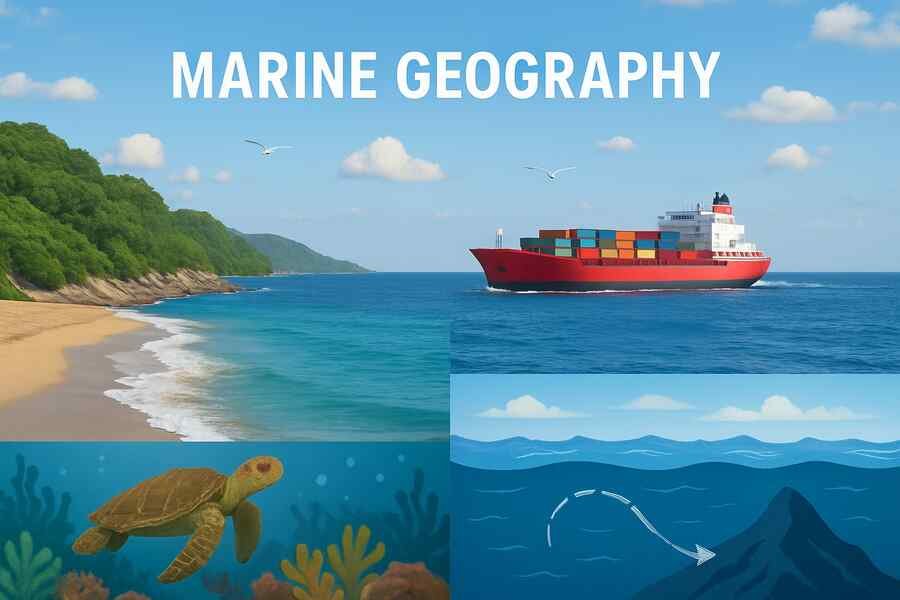The Marvels of Marine Geography: Why Oceans and Coasts Can Change Our World
Picture this: sunrise at the beach, salt in the air, gentle waves crashing, sky glowing orange. What gives oceans and coasts the power to shape weather, economy, culture, even our future? That’s marine geography, the field that unveils the magic between land and sea.
What Is Marine Geography?
Marine geography is the branch of geography that studies oceans, coastal waters, seabed, ocean currents, and how humans interact with all of this. It blends physical aspects (like waves, climate, deep-ocean darkness) with socio-economic ones (fishing, ports, coastal tourism).
Oceanic Wonders and How They Impact Our Lives
| Element | Impact |
|---|---|
| Ocean Currents & Temperatures | They shape local & global weather. Events like El Niño and La Niña can bring floods or droughts. |
| Waves & Tides | Shape the coastline, sandy beaches, cliffs, and affect navigation safety. |
| Marine Biodiversity | Coral reefs, fish, plankton — sources of food, medicine, and ecological balance. |
| Ocean Resources | Salt, offshore oil, renewable energy from waves or currents. |
Real Examples from Indonesia and Beyond
- Jakarta and Coastal Floods (“rob”): Coastal cities like Jakarta face rising sea levels and more frequent tidal floods.
- Raja Ampat Coral Reefs: Rich biodiversity, important for research & ecotourism.
- Global Climate Change: Oceans absorb CO₂ and heat; when seas warm, it disrupts climate patterns. National Geographic notes that oceans contribute most of the water vapor that forms clouds and precipitation. National Geographic Education
Challenges We Face
- Plastic & chemical pollution entering the ocean.
- Overfishing that disrupts marine ecosystems’ balance.
- Sea warming accelerating coral bleaching.
- Rising sea levels threatening coastal communities.
Why Marine Geography Matters to Us
Because:
- Understanding it helps us anticipate natural disasters like tsunamis or coastal flooding.
- We can protect marine resources for future generations.
- Coastal economies & cultures can thrive if managed wisely.
- The ocean’s role in climate regulation makes it crucial in environmental policy & climate mitigation.
Conclusion
Marine geography is more than waves and sand. It’s Earth’s big story: from the dark seabed to salty sea breezes, from small fishermen to global policies. If we care for the ocean, we care for our future.
Sources:
- “Oceans” — National Geographic Environment
- “All About the Ocean” — National Geographic Education
- PinterPandai
Coldest Cities in the World: Exploring Extreme Winter Climates



